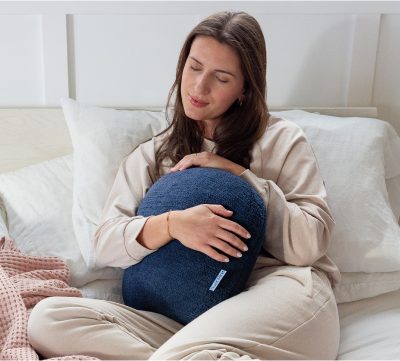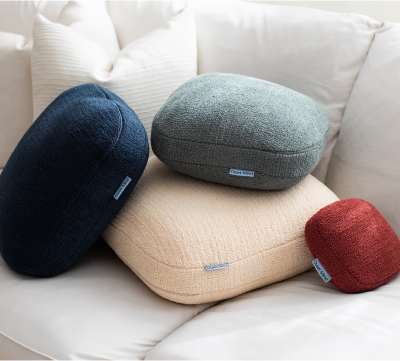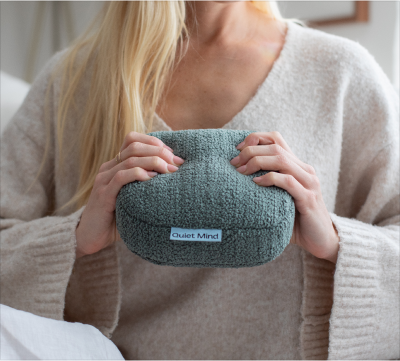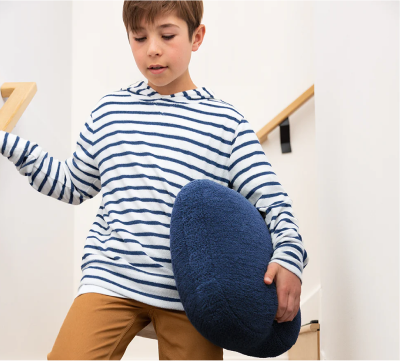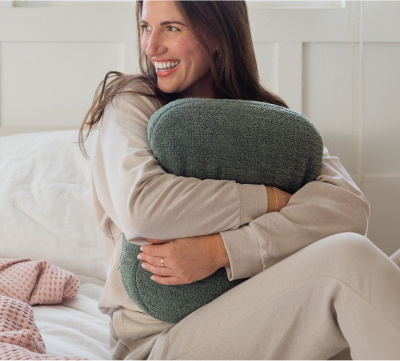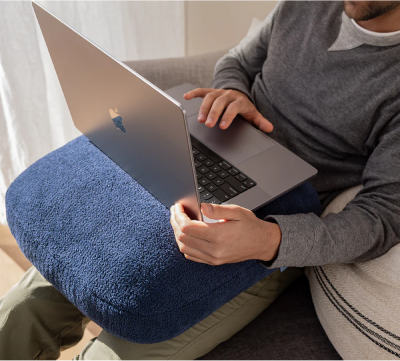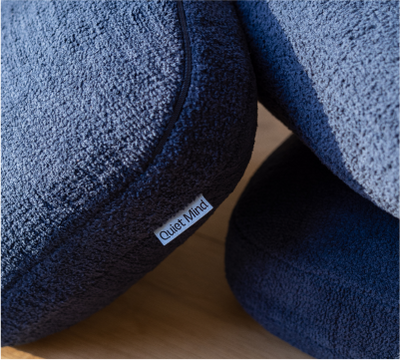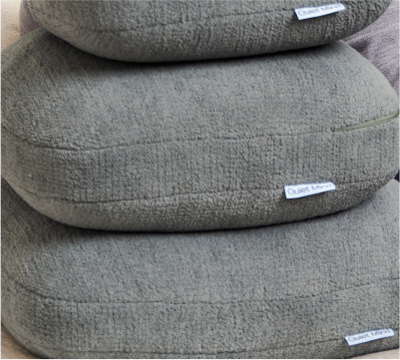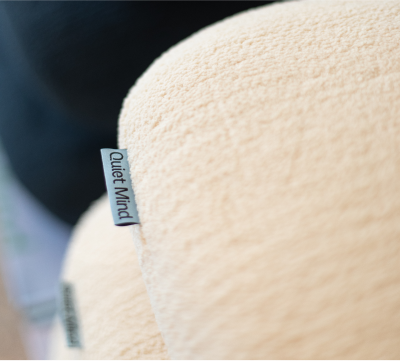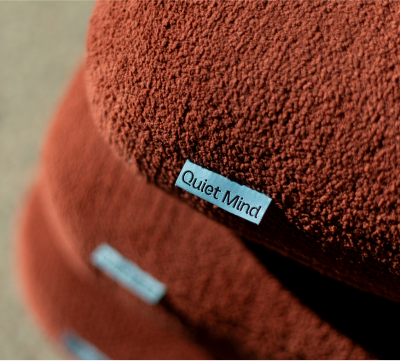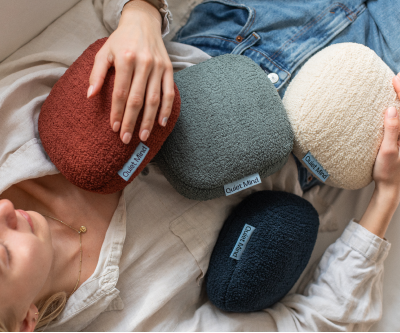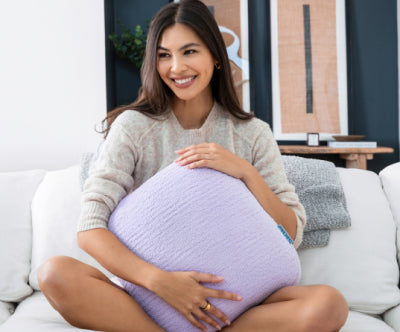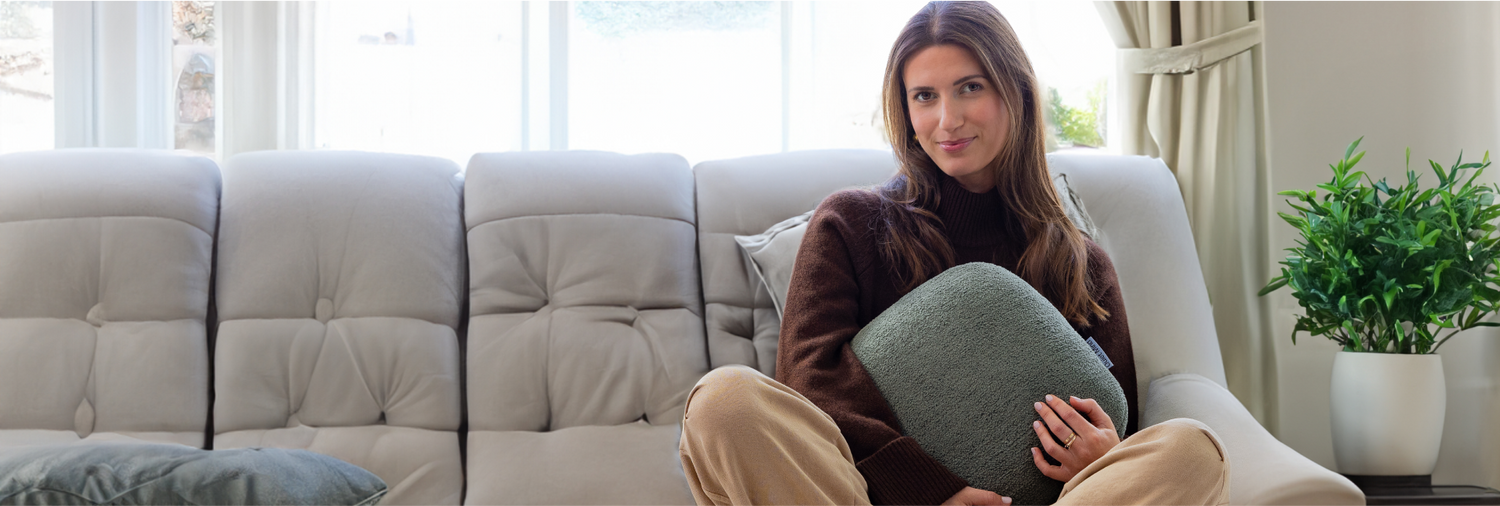Weighted blankets are widely recognized for their calming, grounding effect—often compared to the feeling of a gentle hug. For many people, they offer meaningful support during moments of restlessness, stress, or sensory overload.
When used thoughtfully and correctly, weighted blankets can be a safe and soothing tool for both children and adults. But like any wellness support, they aren’t the right fit for every body or every situation.
Some individuals—especially those with certain medical or mobility-related concerns—may need extra care or professional guidance before use.
This guide offers gentle, body-aware insights to help you choose what’s safe, supportive, and right for your unique needs.
What Is a Weighted Blanket and Who Typically Benefits?
Weighted blankets are designed to provide gentle pressure across the body—a sensation many describe as calming or grounding. This approach, often called deep pressure therapy, has been explored in the context of ADHD (attention deficit hyperactivity disorder), autism, anxiety, and restless leg syndrome.
By applying extra pressure, many weighted blanket users report feeling more settled. For some, this may help fall asleep more easily or reduce nighttime awakenings. The uses and effects of weighted blankets vary based on weight, fill, and individual needs. Researchers have found that weighted blankets may support relaxation and lower levels of stress and anxiety, though results can vary.
Common reasons people use a weighted blanket include:
- Managing anxiety and insomnia
- Supporting sensory regulation in those with autism spectrum disorder
- Enhancing calm for individuals with ADHD
- Addressing symptoms of chronic pain
- Promoting rest for people with sleep challenges
That said, not every person will benefit from a weighted blanket. Knowing your needs and health conditions is key to choosing a blanket that’s truly supportive.
Who Should Not Use a Weighted Blanket? Key Groups to Avoid Use
Weighted blankets aren’t one-size-fits-all. For some individuals, especially those with certain medical conditions or vulnerabilities, they may pose physical or psychological risks.
Infants and Toddlers: Why Weighted Blankets Are Unsafe for Young Children
Weighted blankets are not suitable for infants or toddlers under the age of two. At this stage of development, children have limited ability to move independently or communicate discomfort. A heavy blanket may feel too restrictive and affect their ability to shift or regulate body temperature.
For older children—particularly those over age three—use may be appropriate when guided by a parent or pediatric specialist. The key is ensuring that the weight and design are suited to the child’s size, strength, and sensory needs.
Children With Medical Conditions: When to Seek Pediatric Approval
Some children with conditions such as autism, epilepsy, or low muscle tone may benefit from weighted input—but it’s important to involve a healthcare provider or occupational therapist in the decision.
While many children find comfort and regulation from gentle pressure, others may feel overstimulated or unsettled. A personalized approach ensures the experience remains positive and safe.
Lighter or targeted tools like lap pads or weighted pillows can be helpful for introducing this kind of support gradually and with more flexibility.
People with Respiratory Conditions (Asthma, COPD, Sleep Apnea)
If you live with a respiratory condition that affects breathing—such as moderate to severe asthma, chronic obstructive pulmonary disease (COPD), or sleep apnea—it’s important to approach full-body weighted blankets with care.
The added weight may create a sensation of chest pressure that could interfere with restful breathing. It’s best to speak with your doctor before use to ensure the product supports, rather than disrupts, your natural breathing patterns.
People with Circulatory or Blood Pressure Concerns
Those with poor circulation, low blood pressure, or vascular conditions may experience discomfort when using a heavier blanket. Signs like tingling, numbness, or swelling could indicate that the weight is too much for the body’s needs.
A lighter blanket or more localized form of deep pressure stimulation may offer similar calming benefits with greater comfort.
People With Claustrophobia or Anxiety Triggered by Pressure
While many people find weighted blankets helpful for anxiety or restlessness, others—especially those sensitive to pressure or who experience claustrophobia—may not enjoy the full-body sensation.
If heavy bedding or enclosed spaces feel overwhelming, smaller weighted tools like weighted pillows may provide a more manageable and supportive alternative.
Starting with brief use while awake (rather than overnight) can help you gauge your body’s response and comfort level.
Older Adults or Those with Limited Mobility
Weighted blankets may support better rest and reduced agitation for some older adults—but only if they can move freely and adjust the blanket on their own.
For seniors with mobility challenges, recovering from surgery, or experiencing muscle weakness, a full-body weighted blanket may increase the risk of restricted movement or difficulty repositioning.
In these cases, a healthcare provider can offer guidance on what type of support is most appropriate and whether a smaller or lighter option would be safer.
Can You Use a Weighted Blanket If You Have a Medical Condition?
Many people living with health conditions—whether physical, neurological, or sensory—find weighted blankets and pillows to be deeply grounding and supportive. From easing nighttime restlessness to promoting a sense of calm, these tools are often part of a safe and soothing wellness routine.
That said, everybody is different. If you have a medical condition that affects circulation, mobility, or sensation, it’s a good idea to check with a healthcare provider before introducing weighted pressure—especially for overnight use.
When a Little Extra Guidance May Help
If you live with a condition that affects how your body senses touch or temperature (such as diabetes with neuropathy or a neurological disorder), you may be less able to feel when something is too warm, heavy, or tight. In these cases, it’s worth taking a moment to ensure that a weighted product won’t interfere with comfort or circulation.
Similarly, if you’re recovering from surgery or managing reduced mobility, the added weight of a blanket might feel limiting during sleep. In those situations, a lighter option—or a product that offers targeted pressure, like a weighted pillow or lap pad—can offer support without added strain.
Thoughtfully Designed for Comfort and Control
Quiet Minds weighted pillows are intentionally designed to be:
- Manageable in size and weight, making them easier to adjust or remove.
- Made with breathable, body-friendly fabrics that support comfort year-round.
- Focused on targeted pressure, offering flexibility for various needs and settings.
These choices make them a gentle alternative for people who want the calming benefits of weighted support without the commitment of a full-body blanket.
A Balanced Approach
If you’re ever unsure whether a weighted product is right for your body, a quick check-in with your doctor, physical therapist, or occupational therapist can provide helpful clarity.
Most importantly trust what your body tells you. If something feels comforting, supportive, and easy to move with—it’s likely a good fit. And if it doesn’t, there are always alternatives that can meet you where you are.
Weighted products are designed to enhance well-being, not complicate it. At QuietMind, we’re here to support that journey with care, intention, and calming solutions that work for real life.
When to Consult a Doctor Before Using a Weighted Blanket
You should always speak to a healthcare provider if any of the following apply:
- You or your child have a chronic health condition or sleep disorder
- You’re unsure what weight is appropriate
- You’ve never used one before and want to avoid unintended side effects
- You’ve experienced negative reactions to pressure in the past
A medical provider, occupational therapist, or sleep specialist can help determine:
- Whether a weighted blanket is suitable for your body type and needs
- What weight range (typically 7–12% of body weight) is safest
- Whether alternative strategies may be more beneficial
If you’ve been cleared to use one, make sure you’re choosing a weighted blanket that’s right for your body and needs—factors like weight, fill type, and body size all play a role in comfort and safety.
Alternatives to Weighted Blankets for Sensitive Users
If a full weighted blanket isn’t safe for you or a loved one, there are other calming tools that offer similar benefits without the risks.
Gentler alternatives include:
|
Alternative |
How It Helps |
|
Weighted pillow |
Offers gentle, focused pressure to the chest, lap, or neck—promotes calm and grounding during rest or stressful moments |
|
Weighted lap pads |
Provide targeted pressure without restricting movement |
|
Compression vests or wraps |
Controlled sensory input with freedom to remove easily |
|
Body socks or resistance bands |
Offer proprioceptive feedback through safe movement |
|
Calming music or sound machines |
Help regulate the nervous system via auditory input |
|
Aromatherapy (e.g., lavender, chamomile) |
Can relax the senses and promote restful sleep |
These tools can support sensory regulation and calm without the full-body weight of a traditional blanket. Quiet Minds Mini Squeeze are thoughtfully designed for this kind of gentle, focused support—perfect for daily grounding moments at home, school, or on the go.
Final Safety Checklist: Are You a Good Fit for a Weighted Blanket?
Weighted blankets and pillows can be a soothing addition to your routine—but the most important factor is how your body feels when using them. Here's a gentle checklist to help you decide whether a full weighted blanket is a good fit right now:
- You’re able to move comfortably and adjust the blanket on your own.
- You feel calm (not confined) when resting under gentle pressure.
- You’re not currently experiencing breathing, circulation, or mobility challenges that make heavier bedding uncomfortable.
- You’ve chosen a weight that feels right for your body—typically around 7–12% of your body weight.
- If you have a health condition, you’ve checked in with a provider or started with a lighter option to see how it feels.
If these all feel true for you, a weighted blanket may offer a sense of ease, grounding, and rest that supports your unique needs.
QuietMind is here to meet you wherever you are in that process—with flexible, sensory-friendly tools designed to bring comfort, not complexity.
About Quiet Mind
At QuietMind, we believe that calm is something you can feel—and that everyone deserves tools that support it gently and naturally. Our signature weighted pillows are designed to deliver focused, comforting pressure that helps ease stress, settle the nervous system, and encourage better rest.
Whether you’re navigating ADHD, sensory sensitivity, anxiety, or simply seeking a more peaceful evening routine, our products are thoughtfully created to meet you where you are.
With QuietMind, you’ll find simple, sensory-friendly solutions that fit into real life—helping you come back to yourself with softness, not struggle. Discover our weighted pillows and find your path to a quieter mind.
Frequently Asked Questions
Can a weighted blanket be unsafe?
Weighted blankets are safe for most people when used correctly. However, if someone has limited mobility, respiratory challenges, or is under age 2, it’s best to consult a healthcare provider first. Always follow product guidelines and start with what feels comfortable for your body.
Is it safe for seniors to use weighted blankets?
Many older adults find weighted blankets soothing, especially for sleep or restlessness. As long as the individual can move freely and isn’t managing serious respiratory or circulation concerns, a lighter-weight option may offer calming support. When in doubt, smaller products like weighted pillows can be a flexible alternative.
What if a child uses a weighted blanket unsupervised?
For safety, children under 2 should never use a weighted blanket. For older children, it’s important to choose an age-appropriate option and supervise use—especially at bedtime. A healthcare provider or occupational therapist can offer guidance if your child has specific sensory or medical needs.
Can you use a weighted blanket with asthma or sleep apnea?
Some people with mild asthma or sleep concerns still find weighted blankets helpful, but it’s important to check with your doctor—especially if you have a condition that affects breathing during rest. Lighter options or weighted pillows may be more suitable and easier to adjust.
Are there gentler alternatives to weighted blankets for anxiety?
Yes. Tools like weighted lap pads, compression wraps, calming scents, or sound machines can all offer sensory input in a more localized or adjustable way. Quiet Mind’s weighted pillows, for example, are designed to provide focused support without full-body pressure.
